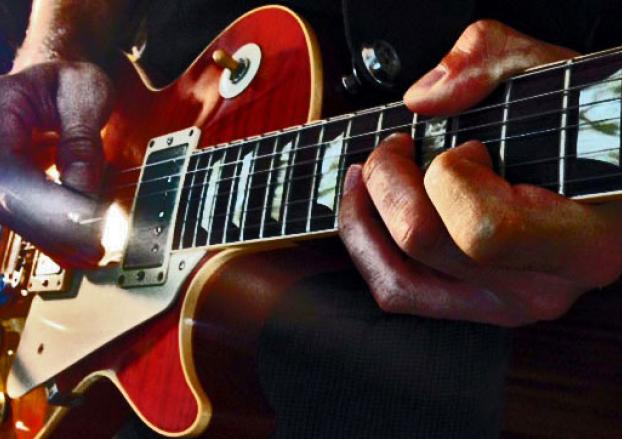How to Expand Your Jazz Chops with Rhythmic Displacement
All the latest guitar news, interviews, lessons, reviews, deals and more, direct to your inbox!
You are now subscribed
Your newsletter sign-up was successful

When learning how to play jazz guitar, one of the big concepts many players tackle is learning licks from famous players and classic solos.
When doing so, you can learn the lick as played on the recording, but you also can work the lick around the bar rhythmically in order to give you variations that you can apply to your soloing ideas as well as the original lick. In this lesson, you’ll learn a fun and cool technique you can use to take one lick and make it sound like eight licks by displacing it around the bar.
Though this approach is associated with sax player Lee Konitz, who taught this to his students, it also fits well on the guitar and is worth spending time in the woodshed to bring into your playing today.
Lick 1: On the Beat
To begin, let’s take a classic-sounding jazz lick you can learn starting on beat 1 of the bar, then we’ll start to vary this lick in the next two examples. In order to make sure you can quickly grasp those variations, make sure you memorize this lick and get it comfortable under your fingers and in your ears before moving to the next two sections of this lesson.

Lick 2: Anticipated
The first variation we’ll look at is taking the exact same lick, but starting it on the "and" of 4 on the bar before the progression starts. This creates a sense of anticipation in your line, and gives you a quick and relatively easy variation for the original lick that you can use in your solos without sounding repetitive or monotonous with the same lick.
All the latest guitar news, interviews, lessons, reviews, deals and more, direct to your inbox!

Lick 3: Delayed
As well as starting the lick an 8th-note early when playing it over a ii V I progression, you also can start it an 8th note later to add a sense of delayed resolution to your lines. Once you have worked this lick out on the "and" of 4, 1 and the "and" of 1, you can move it around to start on any beat in the bar in order to take it further in the practice room and out on the bandstand.

Now that you have practiced playing the lick starting on three different beats within the bar, you can try moving it around to other beats to see how it sounds when you start on beat 2, the "and" of 2, 3, etc. By working a lick around the bar like this, you are learning eight different variations for the same lick, by starting on the eight 8th-notes in the bar, providing you a ton of improvisational material from just one classic jazz line.
Do you have a question or comment about this lick transposition technique? Share your thoughts in the COMMENTS section below.
Matt Warnock is the owner of mattwarnockguitar.com, a free website that provides hundreds of lessons and resources designed to help guitarists of all experience levels meet their practice and performance goals. Matt lives in the UK, where he is a lecturer in Popular Music Performance at the University of Chester and an examiner for the London College of Music (Registry of Guitar Tutors).
Matt Warnock is the owner of mattwarnockguitar.com, a free website that provides hundreds of lessons and resources designed to help guitarists of all experience levels meet their practice and performance goals. Matt lives in the UK, where he teaches Skype guitar students all over the world, and is an examiner for the London College of Music (Registry of Guitar Tutors).
